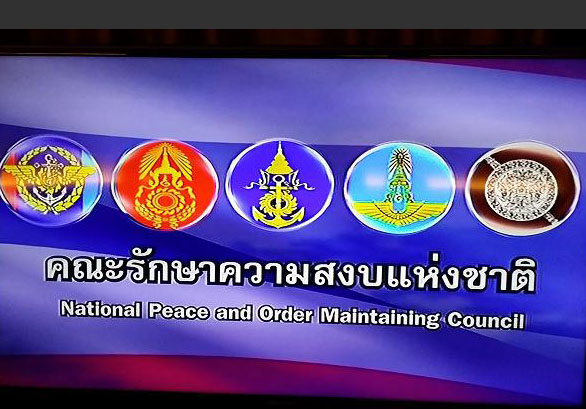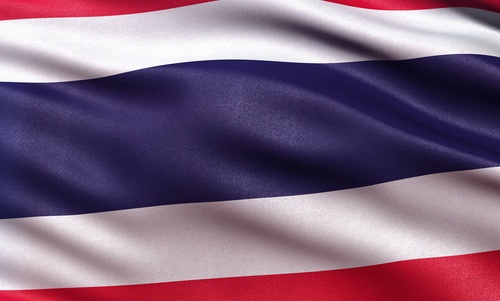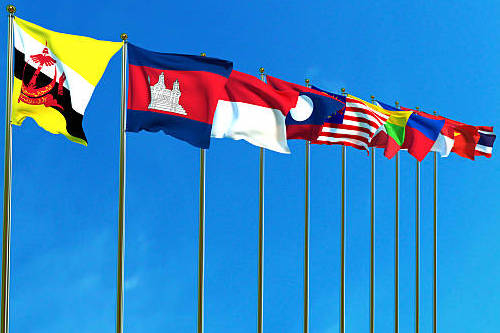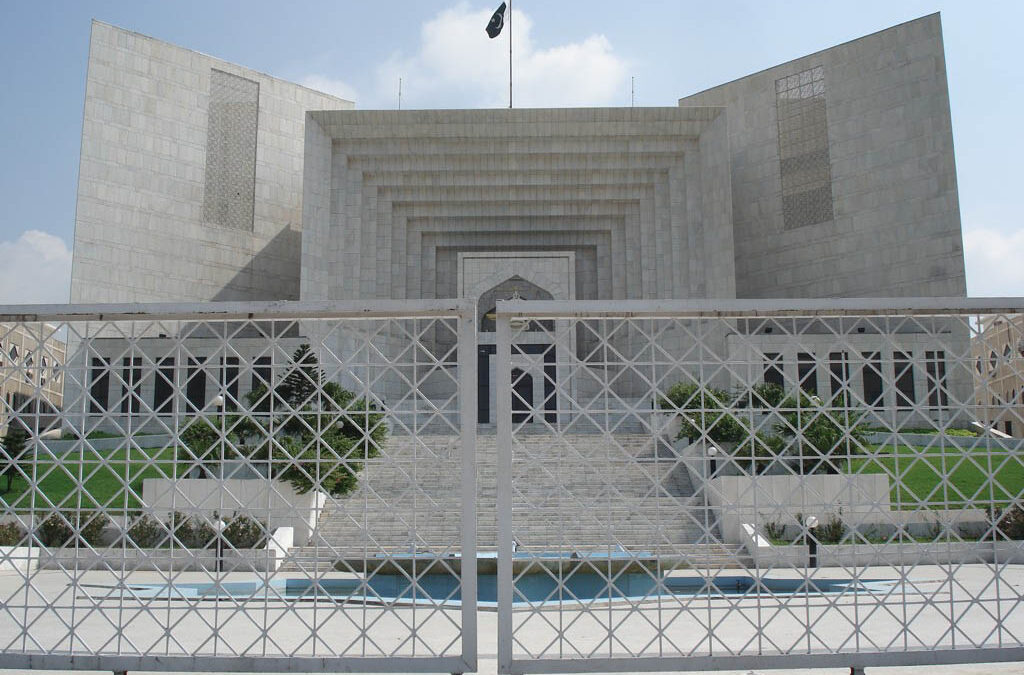
Pakistan: no more preventive detention
An opinion piece by Reema Omer, Legal Adviser, ICJ Asia & Pacific Programme

An opinion piece by Reema Omer, Legal Adviser, ICJ Asia & Pacific Programme

An opinion piece by Sam Zarifi, ICJ’s Regional Director for Asia and the Pacific. This Op-ed was first published in the New York Times.

An opinion piece by Sam Zarifi, ICJ regional director for Asia and the Pacific, on Thursday’s military coup in Thailand. It is the 12th time the armed forces have seized power since 1932 and a move that many fear may lead to more violence in the country.

An opinion piece by International Commission of Jurists’ International Legal Advisor for Southeast Asia Emerlynne Gil on the Philippines’ reluctance to speak out about Brunei’s new Penal Code.
Brunei Darussalam recently began implementing its new Penal Code, which includes draconian penalties including death by stoning and the amputation of limbs.
The new Penal Code has been widely criticized, including by the International Commission of Jurists, for contravening international human rights law and standards. Not surprisingly, under international law, these forms of punishment are characterized as cruel and inhuman and therefore absolutely prohibited.
The new Penal Code also criminalizes same-sex relations and extramarital sexual relations. Many of the law’s provisions are ambiguously worded, but could certainly be construed as restricting the practice of other religions, thereby violating the right to freedom of religion.
One of the provisions, for instance, provides that any person who “propagates religion other than the religion of Islam” to a person having no religion shall be guilty of an offence and may be imprisoned for 5 years or fined. This provision could very well apply to Catholic priests who conduct baptisms of babies who do not have any religion.
An estimated 30,000 Filipino migrant workers reside in Brunei, most of whom are non-Muslim. They will have to live under this law, which is applicable to both Muslim and non-Muslim populations.
The Philippine government historically has been outspoken and pro-active when it comes to protecting the rights of its migrant workers. But it has been uncharacteristically silent in its response to the implementation of Brunei’s new law.
Rather than expressing concern to Brunei over the implementation of the law and its impact on its migrant workers there, the only step taken by the Philippines has been to gather the migrant workers living in Brunei to brief them about the new law.
Ambassador Nestor Z. Ochoa, the Philippine’s top diplomat there, was quoted by GMA News saying, “We Filipinos should take responsibility to educate ourselves on this new law and its effect on our everyday lives.”
The Philippines also neglected to mention the new Penal Code when Brunei went through the United Nations Universal Periodic Review in Geneva last week. Instead, the Philippines commended Brunei for ensuring the welfare of migrant workers in the country.
The Philippines’ diffidence on this issue is especially mystifying because Brunei’s new Penal Code runs counter to the spirit of the move toward greater economic integration in the Association of South East Asian Nations (ASEAN). Brunei’s new penal code will materially impact Filipinos and other ASEAN nationals (and other non Brunei citizens) who make up a significant proportion of the small country’s work force.
The Philippines should raise its concerns in the context of ASEAN integration, both in terms of economic impact and human rights.
Because ASEAN is also now tentatively discussing greater protection of human rights for the people in ASEAN, The ASEAN Intergovernmental Commission on Human Rights (AICHR) has been established “to develop strategies for the promotion and protection of human rights and fundamental freedoms to complement the building of an ASEAN community.”
ASEAN Member States should use the mechanism of the AICHR to address the enactment and prevent the implementation of a law that flies in the face of international human rights standards and is a setback to the efforts in developing regional human rights standards as part of building an ASEAN community.
The Philippines should play a leading role in raising concerns about Brunei’s new law through the AICHR and try to dissuade Brunei from implementing the egregious provisions of the new law.
The principle of non-interference can be no basis to justify a lack of action on this issue. Although the non-interference principle is embodied in the ASEAN Charter and reiterated in the Terms of Reference of the AICHR, it is unacceptable to interpret the principle, as some within ASEAN have, to mean that Member States are prohibited from commenting on each other’s domestic affairs.
Over the years, ASEAN Member States have used this principle inconsistently, but mostly it has been used as a political tool to avoid being made accountable for human rights violations.
It must be made clear that the protection and overall realization of human rights, is not exclusively a matter of internal affairs of States, but the international community has an interest, including a legal interest, in this realization.
This principle has long been accepted by the international community, including by ASEAN member states, notably in the 1993 Vienna Declaration and Program of Action.
Indeed, ASEAN Member States have on occasion discussed extensively another Member State’s domestic affairs. For instance, in 2009, after the summit in Thailand, the ASEAN issued a statement encouraging Myanmar to release political prisoners and allow democracy.
Last year, the ASEAN urged Indonesia to quickly ratify the Agreement on Transboundary Haze Pollution, essentially commenting on the internal affairs of the country.
ASEAN Member States are also already allowing other countries to comment on their domestic affairs through the various international mechanisms in which they participate.
All ASEAN Member States are parties to the Convention on the Rights of the Child (CRC) and the Convention on the Elimination of Discrimination Against Women (CEDAW). ASEAN is considering its own convention on violence against women and children—both of which are directly implicated in the problematic provisions of Brunei’s Penal Code.
The Philippines therefore must speak up on Brunei’s Penal Code, not only because the rights of thousands of Filipino migrant workers are at stake, but also because it has an opportunity to take a leading role in advancing human rights standards in the ASEAN.
It should take this issue as an opportunity not only to protect its citizens in Brunei, but also to initiate a discussion within the ASEAN to ensure that a more robust and effective human rights regime prevails in the region.

An opinion piece by International Commission of Jurists’ (ICJ) legal adviser Reema Omer on Pakistan’s lack of willingness to address the serious crime of enforced disappearances.
On 26 February 2013, the United Nations Working Group on Enforced and Involuntary Disappearances (WGEID) published its report on Pakistan, following the WGEID’s visit to the country in September 2012.
The report expressed concern at the continuing practice of enforced disappearances in Pakistan and made a series of recommendations to the Government.
A year later, despite the growing scale of the practice, Pakistan is further than ever from meaningfully addressing the serious crime of enforced disappearances.
Many of the laws and policies adopted by the Government this past year have made a mockery of the Working Group’s report and Pakistan’s national and international human rights commitments.
A close look at the report, and particularly its recommendations, is essential, especially as Pakistan is in the process of drafting a law on enforced disappearances.
Enforced Disappearance is a serious crime under international law.
An enforced disappearance occurs when State agents or those acting with their authorization, support or acquiescence, abduct or detain a person and then refuse to recognize the detention or conceal the person’s fate or whereabouts, placing such a person outside the protection of the law.
The Working Group acknowledged that Pakistan was facing grave security challenges.
However, it pointed out that under international law and standards, including Article 7 of the Declaration on the Protection of All Persons from Enforced Disappearance and the International Covenant on Civil and Political Rights (ICCPR), enforced disappearances cannot be justified under any circumstances.
In this context, the WGEID was particularly concerned over the extensive powers given to security agencies under Pakistan’s anti-terror regime and recommended that Pakistan amend provisions of the Anti-terrorism Act 1997 and the Actions (in Aid of Civil Power) Regulations 2011, which appeared to facilitate the practice of enforced disappearances.
The Government ignored the WGEID’s recommendation and promulgated perhaps the most draconian anti-terrorism law the country has seen in the form of the Protection of Pakistan Ordinance, 2013 (PPO).
Section 9 of the PPO allows the Government to withhold information regarding the location of detainees, as well as their place and grounds of detention for any “reasonable cause”.
This provision is an affront to the rule of law.
It seeks to place detainees beyond the protection of the law, and denies them legal personality, which is absolutely prohibited under the ICCPR and general rule of law principles. Effectively, it seeks to legalize the practice of enforced disappearance.
The Working Group also emphasized that fighting impunity for perpetrators of human rights violations is essential and expressed concern that no State agent has been convicted in relation to acts of enforced disappearance.
The Supreme Court of Pakistan too reiterated the Working Group’s call to bring perpetrators of enforced disappearance to account.
Quite appallingly, following the Court’s judgment in the Muhabat Shah case delivered in December 2013, the Government filed for a review of the judgment, asking the Court to delete remarks implicating the security agencies in enforced disappearances as such findings could “demoralize the troops”.
The PPO also grants blanket immunity to all State agents for acts done in “good faith” in the performance of their duties.
It provides that any person detained by the armed forces before the coming into force of the Ordinance shall be deemed to have been detained pursuant to the Ordinance.
This retrospective immunity to the armed forces undermines the little progress made in the last few years by the superior courts of Pakistan to bring perpetrators of enforced disappearance to account and is likely to entrench the already pervasive impunity enjoyed by the security forces, particularly related to human rights violations.
Furthermore, the WGEID urged Pakistan to ratify the International Convention for the Protection of All Persons from Enforced Disappearance (Convention on Enforced Disappearance).
Numerous States made this recommendation during Pakistan’s Universal Periodic Review in 2012 as well.
The Government has so far made no progress toward ratification.
Instead, it has sought to undermine an attempt made by the Supreme Court to apply the principles enshrined in the Convention.
In the Muhabat Shah case referred to above, the Supreme Court held that the principles of the Convention on Enforced Disappearances were applicable in Pakistan as the Convention was inextricably linked with the right to life, guaranteed by the Pakistan’s Constitution.
The right to life is also recognized by the ICCPR, which Pakistan ratified in 2010.
The Government, however, challenged the ruling, arguing that as Pakistan has not ratified the Convention, the Court could not hold it to be applicable in Pakistan.
The WGEID also recommended that the crime of enforced disappearance be included in the Criminal Code of Pakistan in line with the definition given in the Convention on Enforced Disappearances.
Despite hundreds, if not thousands, of people “missing” in Pakistan following apparent abduction by or with the complicity of the State, enforced disappearances are still not specifically criminalized in the country.
This is particularly deplorable as Pakistan accepted recommendation 122.20 made during its 2012 Universal Periodic Review, which called on the Government to criminalize enforced disappearances in the penal code.
One hopes that the proposed law on enforced disappearances -reported to be in its final stages- takes the Working Group’s recommendations more seriously.
Refusal to do so will be a damning indictment of Prime Minister Nawaz Sharif’s Government’s failure to meet its commitment to uphold Pakistan’s international human rights obligations.